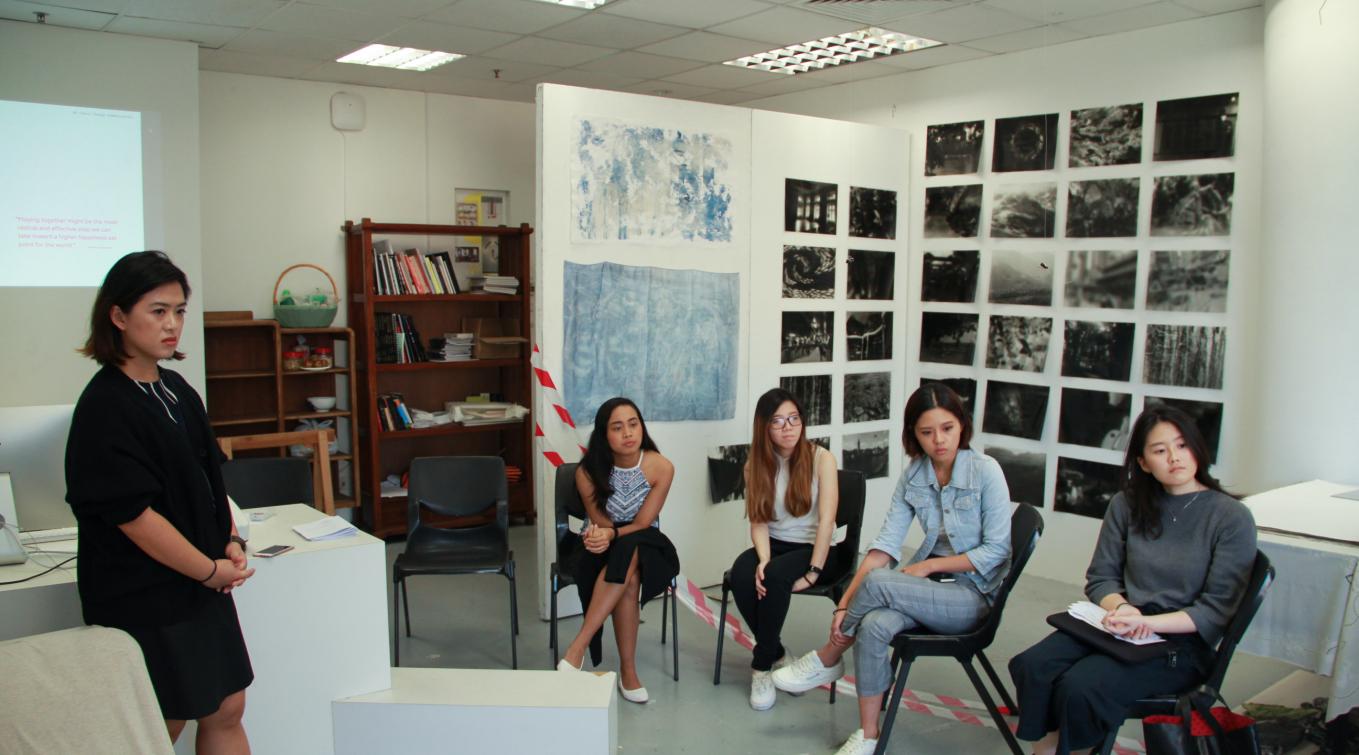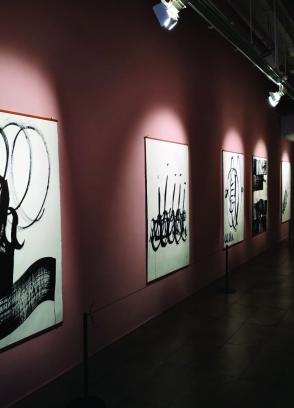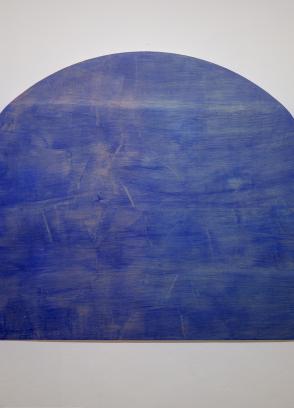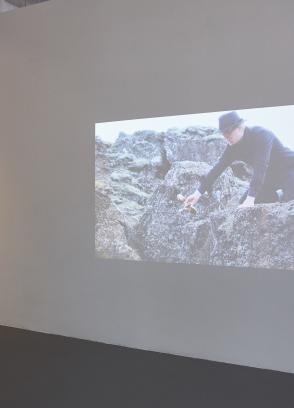After hearing about how layered and complex the ideas and concepts within specific nodes of histories and culture were, that instigated such research and examination in their dissertations, one cannot leave without taking away an understanding of the value of writing a dissertation.
Bajaj Tanak, BA(Hons) Fine Arts Level 3 (2019)
For a long time, stringency and repetition have been deep-seated in male and female identities but in the shadows of these social structures may lie something more primitive. This dissertation critically analyses and uncovers, through contemporary art practices, the implicit misogyny in a patriarchal society. To develop a methodology that examines traditions that have been passed on, reinterpreted and re-executed in the name of religion, this paper explores and compares the archives in forms of newspaper articles, books, television programs against Hindu scriptures in which are prescribed the everyday realities of women and their roles in society. The research deepened my studio practice that negotiates a fresh dialogue between logic and mythology.
My own practice adopts a critical perspective of self through the lens of my ancestral heritage and the eyes of the present male. Experiencing transformation over a 23 days framework is to critique the disadvantaged limitations of women’s age prescribed in Indian culture. This conceptual framework provides me with space to negotiate between history’s logical approaches to womanhood that have now become ineffective mythical traditions/rituals that underlines a misogynistic existence, and the need to decipher them to create a language of my own, which I do through fabric manipulation.
Before the presentation, I was a little unsure about how successfully I could present my ideas to the audience because it did not seem that the time given was enough to be able to communicate cultural issues to a group of people who are not aware of the practices of my culture. While I was giving my presentation I realised that it was not necessary for people to understand the issues as much as how my artistic practice was tackling these issues. It had been a great experience to be able to present, and listening to other presenters share the same transformative process gave me a certain sense of excitement and relief.
Vidhi Gupta, BA(Hons) Fine Arts Level 3 (2019)
Presenting at Trans/Mission was an altogether comprehensive experience. Preparing for the seminar not only helped me resolve my thoughts for my dissertation, but also gave me an opportunity to seek feedback before finishing it up. My paper discussed the relevance of rituals in today’s time while discussing the role of gender. My practice is inspired by the compulsive need people have in following rituals, and centres around texts from my journals. I apply ephemeral materials found in almost all Hindu rituals and used daily in my household —that consists mainly turmeric, vermillion and camphor. My methodology included adopting traditional materials in a contemporary manner and to relook the links between the traditional with the modern. The point of this paper was to deconstruct myths, and to re-examine religious rituals, starting with at a personal level, to understand my family’s insistence of following these rituals and to question their relevance in today’s context. Since my topic was a blend of both personal and general human behaviour towards rituals, my audience at the seminar was able to relate to the topic well. The questions that came up helped me look at the same topic in new light and helped me add more character to my paper.
Fazleen Karlan, BA(Hons) Fine Arts Level 3 (2019)
My dissertation analyses how contemporary artistic practice in Singapore decentres commemorations of history. Using the recent archaeological excavations at Empress Place as a departure point, my own artistic practice grapples with the phenomenon of commemorating historiographies related to Raffles and other ‘founding’ stories of Singapore, in lieu of the Bicentennial 2019. It juxtaposes the labour of digging for historical knowledge with constructs pertaining to Singapore’s history. Using different frames to examine the current context, this paper argues for a deeper engagement with Singapore’s history, in contrast to the top-down approach of commemorations initiated by the State.
Participating in Trans/Mission provided an opportunity for me to share the research that was still in progress and listen to students from other faculties and their research interests. Additionally, questions from the audience uncovered some areas in my dissertation that could be strengthened, and which I could then seek to address. It further strengthened my resolve in finishing this paper. It was a fruitful experience.
Lai Yu Tong, BA(Hons) Fine Arts Level 3 (2019)
Too much? Art-making in an age of image saturation
My dissertation investigates the consequences of overproduction and consumption of images by examining artists and thinkers whose works have addressed and framed our discourses around this contemporary condition. In particular, it attempted to draw parallels between Nicolas Bourriaud’s notion of postproduction, Jan Verwoert’s notion of appropriation and the study of media archaeology with environmental models of production and consumption in the age of the Anthropocene. These theories were discussed through the artworks of Thomas Hirschhorn, Apichatpong Weerasethakul and Erik Kessels. In so doing, it sought to question the role and responsibility of the artist, as an active participant within a wider mediascape, addressing and shifting the collective consciousness about how we should continue consuming and producing images in this day and age.
I am not so sure what kind of an experience it was for me. It was a good opportunity both to share the research with an audience through a presentation format and organise my thoughts more clearly and concisely as I was still in the midst of writing the paper then.
Pooja Kanade, BA(Hons) Fine Arts Level 3 (2019)
Grey Spaces: Inclusivity and Artist-initiated projects
“The museum is one truth, and this truth is surrounded by many truths which are worth being explored.” (Hans Ulrich Obrist, Ways of Curating, 2016, p. 96)
Trans/Mission 2019 provided a space for me to ground my raw almost naive thoughts on inclusivity and ground-up initiatives. As an educator prior to my undergraduate studies, having experienced a culture where initiatives were lacking or were not encouraged/cultivated, it became a priority to conceive Grey Spaces: Inclusivity and Artist-initiated projects. Grey Spaces focused on rationalising the predicament of existing institutional systems and structures while exploring ground-up initiatives to provide an alternative voice in the art scene, or society as a whole.
And yet, the experience of writing that had been a double-edged sword. This admission seeks urgency and continuation. It is also made in the hopes that someone else will carry forward or provide an further argument. Nonetheless, I still wish to continue expanding my ideas and argument(s).
Presenting at Trans/Mission, or more accurately verbalising the summary of something I am really passionate about was not easy. Regardless, it was an enthralling experience; it did teach me to be better prepared next time, instead of taking a more spontaneous and intuitive approach as everyone’s time is valuable.
In praise, Trans/Mission is a charming approach that presents graduating students with the opportunity to share their research with the public. I am truly humbled to have taken part in it. I would like to extend my gratitude to Michael Lee for nominating me to be part of Trans/Mission 2019.





